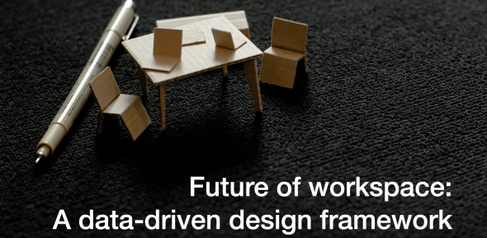Future of Workspaces

The modern office is a complex system that involves dynamic interactions between the design of physical environments and its occupants, serving diverse functionalities and expectations. Office design is shaped by social, economic and technological transformations, as well as organisational interests and individual preferences. The COVID-19 pandemic has accelerated the evolution of office design through a forced large-scale ‘work from home’ experiment. In the post-pandemic time, the conventional ‘office’ concept is being reconsidered as advanced digital technologies have eased location constraints of working, while the term ‘workspace’ has gained prevalence, representing a broader idea of physical and virtual work environments that accommodate hybrid working models. The shift towards hybrid working, as documented in many studies and reports, reflects employees’ desires for flexible work arrangements and employers’ interest in boosting productivity and fostering a positive organisational culture. These evolving dynamics are expected to drive a transformation in workspace design, raising critical questions about the future role of offices and the need for design strategies that emphasise flexibility, occupant well-being and sustainability. This project investigates the workspace design and space planning for the hybrid working setup. It integrates multi-source datasets, including occupancy levels, environmental conditions, spatial structures, human preferences and subjective comfort votes, to develop an evidence-based data-driven design framework. The framework aims to support the creation of physical workspace design strategies that align with emerging demands. A flexible co-working space in London is applied as a contextualised case study.
The work of Flora Haiwei Li and Dr Ronita Bardhan on cooling efficacy of trees is featured on Cambridge Research portfolio . You can read more details about how trees can be a potential nature based cooling solution depends where it is located in Cambridge Research News
The work of Dr Ronita Bardhan and the Sustainable Design Group is featured as one of the key ways that Cambridge researchers are looking at and Using AI to Protect Nature and Climate . You can read more details about how Cambridge is #ShapingAIForEveryone and specifically tackling dementia via the following link: Turbocharging the race to protect nature and climate with AI - Towards more energy-efficient homes
Publications
- Pan, J. & Bardhan, R. (2025) Archetype of future workers and their preferences for workspace design. Architectural Science Review, pp. 1–25. https://doi.org/10.1080/00038628.2025.2489650
- Pan, J., Cho, T.Y., Sun, M., Steemers, K. & Bardhan, R. (2025) Environmental and Spatial Dynamics in a Flexible Workspace for Hybrid Work: A Data-Driven Design Framework. Building and Environment. 270(February 2025): 112544. https://doi.org/10.1016/j.buildenv.2025.112544
- Pan, J., Chen, S. & Bardhan, R. (2024) Reinventing hybrid office design through a people-centric adaptive approach. Building and Environment. 252(February 2024): 111219. https://doi.org/10.1016/j.buildenv.2024.111219.
- Pan, J., Cho, T.Y., Sun, M., Debnath, R., Lonsdale, N., Wilcox, C. & Bardhan, R. (2023) Future workspace needs flexibility and diversity: A machine learning-driven behavioural analysis of co-working space. PLOS One. 18(10): e0292370. https://doi.org/10.1371/journal.pone.0292370
- Thesis:
Pan, J. (2024) Data-driven design framework for hybrid workspaces. PhD Thesis, University of Cambridge. https://doi.org/10.17863/CAM.112030
Team
| Research Associate and PhD | Dr Jiayu Pan, University of Cambridge, UK | |
| Supervisor | Dr Ronita Bardhan, University of Cambridge, UK | |
| Project Administrator | Mutsuko Grant, University of Cambridge, UK |
